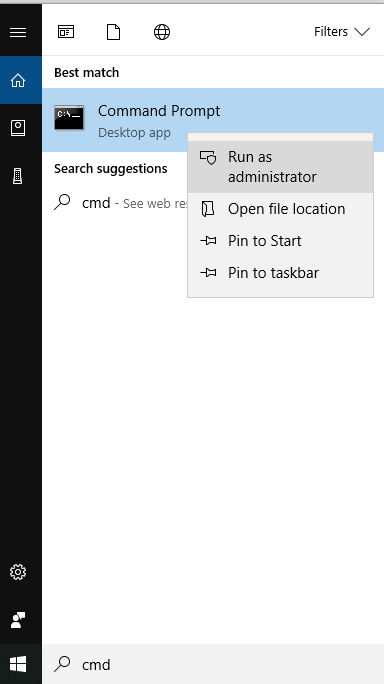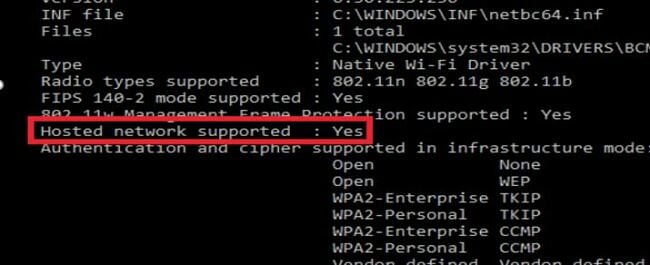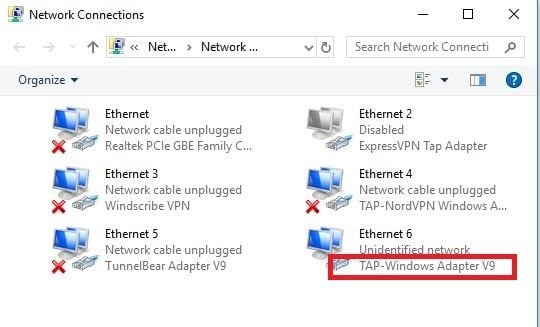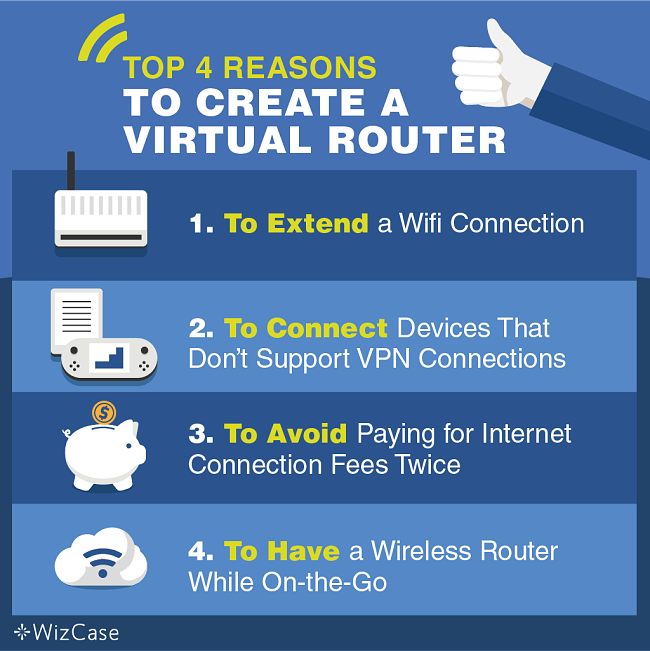Setting Up a Virtual Router on Windows With a VPN
Have you ever used your phone to create a Wifi signal for a friend? If so, you know how to create a hotspot.
But, what if we told you that you could create one on your computer?
That’s right. You can create a virtual router on your computer. With this router, you will be able to share your internet connection with others.
The most efficient way to do this is with a Virtual Private Network, or VPN.
Read this article to find out how to set up a virtual router on a Windows computer using a VPN. Editor’s Note: We value our relationship with our readers, and we strive to earn your trust through transparency and integrity. We are in the same ownership group as some of the industry-leading products reviewed on this site: ExpressVPN, Cyberghost, Private Internet Access, and Intego. However, this does not affect our review process, as we adhere to a strict testing methodology.
Hardware and Software You Need to Create a Virtual Router
To create a virtual router on your computer there are a few things you’ll need.
- A Computer
First, you need to have a computer that has the Windows operating system. It must also have a Broadcom Wifi adapter.
- A VPN
To create a virtual router on a Windows computer, you must have a subscription to a VPN service. Your service must support the OpenVPN protocol. It’s worth mentioning that there are few free VPN services that don’t support this protocol.
- Admin Access
The computer either has to be yours or you have to have administrative access. Without administrative privileges, you can’t set up the virtual router.
Editor’s Note: Transparency is one of our core values at WizCase, so you should know we are in the same ownership group as ExpressVPN. However, this does not affect our review process, as we adhere to a strict testing methodology.
Checking Your Computer Supports Setting Up a Virtual Router
Before you can configure your virtual router, you have to check that your computer supports setting it up.
To check, start by typing “cmd” into the Windows search bar. Then, right click on “Command Prompt” and finally on “Run as Administrator.”

Once the Command Prompt window appears, type “netsh wlan show drivers” and hit “Enter.”
Once you have done the above, check that there is a “Yes” next to the line that says “Hosted network supported”. If that’s the case, your computer can act as a virtual router.

Configuring Your Virtual Router
Now that you now know your computer supports the procedure, it’s time to set it up. Please note that this tutorial is for Windows 7, 8, and 10.
Start Your Virtual Router
To set up your virtual router, go back to your command prompt window. To start, type “netsh wlan set hostednetwork mode=allow ssid= key=”.
You should change the words “MY-NETWORK” and “MY-PASSWORD” with a name and password of your choice. The password should be a term that you will remember but others will not guess so easily. Once you have chosen your network name and password, press “Enter”.
Once the above is complete, more text will appear underneath. This is to tell you that your virtual router is up and running. Once the text is finished loading, type “netsh wlan start hostednetwork” and press “Enter.”
If you don’t get confirmation that your hosted network is up and running, check your network adapter drivers. Then, repeat the process above.
Share Your Connection
Once you get confirmation, you’re ready to share your new connection with others.
Launch the Run Prompt by pressing Windows Key+R. Then, type “ncpa.cpl” and press “Enter.” Once the list of connections appears, choose the one you created. It should have the name you chose during the first phase of the configuration process. Make sure to remember or write down the name of your new connection.

On that list of connections, there will be one with the term “TAP-Windows Adapter” underneath it. Right click on it and select “Properties.” Click on the right tab that says “Sharing.” Then, click on the box that says “Allow other network users to connect through this computer’s Internet connection.”
You can choose the network you created by clicking on the drop-down list and selecting its name. To finish the process, click “OK” at the bottom of the pop-up.
Configure Your VPN Settings
Now that your virtual router is ready and others can connect, go to your VPN application. Make sure the protocol is set to OpenVPN to activate the TAP Windows Adapter.
Once you connect to your choice of server via your VPN, your computer becomes a VPN-enabled virtual router.
Connect Your Devices
Once your virtual router is up and running, all you have to do is connect your devices. The process is the same as it would be when connecting to any Wi-Fi connection. All you have to do is find it and enter the password that you created.
Remember, the VPN must stay connected. Without a connection, the TAP adapter will deactivate and the virtual router will stop working.
Stay Safe
When creating a virtual router on a Windows computer, you must use WPA2 encryption. This will help keep you and your personal information secure. Not only this, you should disable file sharing to ensure no one can access sensitive information on your computer.
The 2 Best VPNs to Set Up a Wireless Router on Windows
Are you still struggling to find the best VPN to get the job done? If so, worry not. Here are our top 2 suggestions for creating a virtual router on a Windows computer:
1ExpressVPN

ExpressVPN has servers in 105 countries across the world. Not only this, the service is easy to use across all devices and operating systems including Windows.
ExpressVPN does offer OpenVPN but you’ll need to download the configuration files to your computer first. That said, thanks to the service’s unlimited bandwidth and no throttling, you’ll enjoy exceptionally fast connections. This applies even when using your computer as a virtual router.
Among the safest VPNs available, ExpressVPN comes with AES-256 encryption, a kill switch, and zero knowledge DNS.
Editor’s Note: Transparency is one of our core values at WizCase, so you should know we are in the same ownership group as ExpressVPN. However, this does not affect our review process, as we adhere to a strict testing methodology.
2Private Internet Access (PIA)

Third on our list of best VPNs to set up a virtual router on your Windows computer is Private Internet Access, or PIA. PIA allows you to connect up to 5 devices at the same time.
The service allows for P2P sharing as well as some of the best security measures put in place to protect your data. Additionally, PIA offers OpenVPN, making it perfect for setting up a router on your computer.
Last but not least, the PIA VPN blocks ads and comes with unlimited bandwidth as well as multiple VPN gateways.
Editor’s Note: Transparency is one of our core values at WizCase, so you should know we are in the same ownership group as Private Internet Access. However, this does not affect our review process, as we adhere to a strict testing methodology.
Top 4 Reasons to Create a Virtual Router
There are various reasons why you may want to know how to create a virtual router on your computer. Here are 4 of the most common ones:

A virtual router can help you extend a Wifi connection. For example, let’s say you’re in a hotel where the internet connection doesn’t extend to both sides of your room.
You can set up a virtual router to your computer and place it where there is a better signal. From there, you can connect your phone or tablet to your computer’s virtual router.
2. To Connect Devices That Don’t Support VPN Connections
Another reason to create a virtual router on your computer is to connect devices that don’t support VPN connections. Popular devices that don’t support VPN connections include:
- Various gaming consoles
- Smart TVs
- First generation Amazon Fire TV sticks
- Apple TV
- Chromecast
- Roku
By using a VPN to create your virtual router, you can route the traffic of other devices through the VPN. It’s a great way to access geo-restricted content on your favorite devices.
3. To Avoid Paying for Internet Connection Fees Twice
Sometimes, hotels charge a fee if you want to access the internet in your bedroom. With a virtual router, you can connect various devices to the internet while only paying one fee.
In fact, you could pay for one room and create a router that allows your friends in the room next door to connect to the internet as well.
4. To Have a Wireless Router While On-the-Go
A virtual router is a great way to share your internet connection with people while on the go.
Imagine this scenario: suppose you’re traveling with a colleague on a train, and you need to collaborate on some tasks, but there’s no internet connection available. In such a situation, you have the option to set up a virtual router using a VPN on your laptop. Afterward, both of you can link up to this router to exchange ideas seamlessly.
With a virtual wireless router, you can share files and connect with others in the car, a meeting, or a cafe.
Bottom Line
Setting up a virtual router on a Windows computer with a VPN is simple as long as you have the right tools to get started.
As long as you have a computer, a VPN subscription with OpenVPN, and admin access, you’ll be able to turn your computer into a Wifi router no matter where you are.
When it comes to VPNs, we recommend you opt for ExpressVPN because of its incredible number of servers and easy-to-use interface. That said, Private Internet Access (PIA) is a good alternative that is fast and packed with their own unique features.




Leave a Comment
Cancel